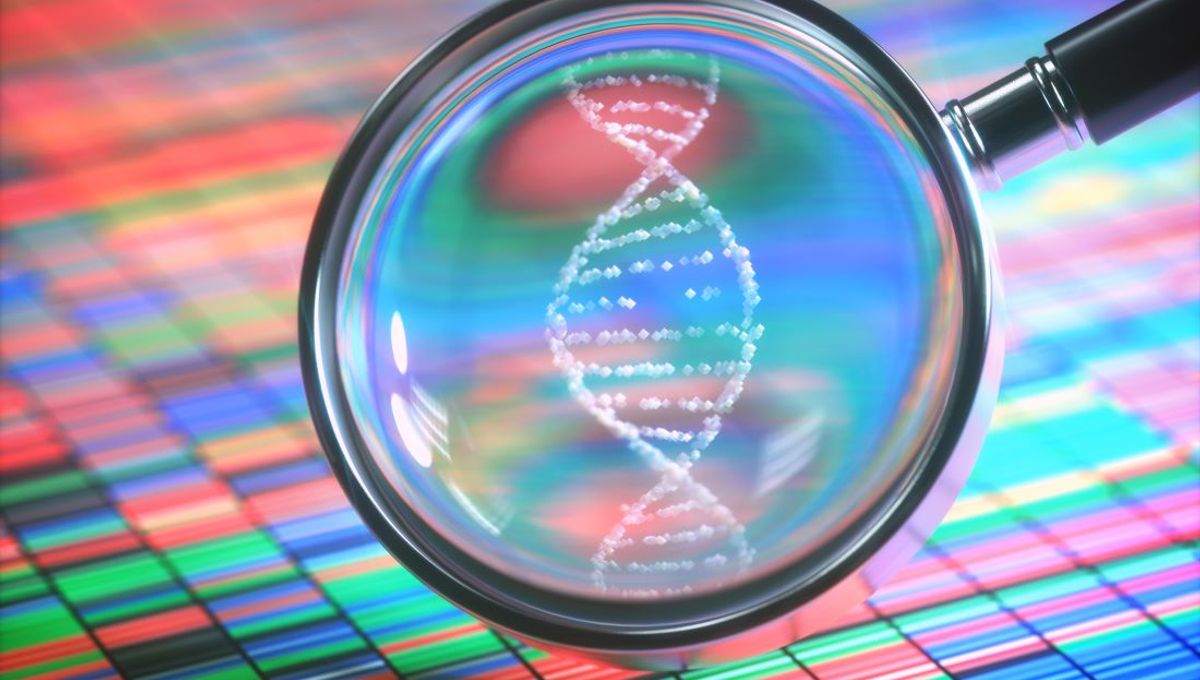
Around 5,500 children with rare genetic diseases can put a name to their condition for the first time, thanks to a decade-long study. Sixty of the diseases diagnosed are brand new to science, and three-quarters of the genetic mutations identified were not inherited from the children’s parents. Understanding the genetic causes of their conditions means that these children can have access to the best possible treatment, and that even those with very rare diseases may no longer feel quite so alone.
Jessica Fisher’s son Mungo was already 18 when the Deciphering Developmental Disorders (DDD) study finally came up with the answers the family had been seeking all his life. He had an extremely rare mutation in a gene called PCGF2, causing learning difficulties, growth restriction, and distinctive facial differences such as a large forehead and sparse hair. The disorder is also associated with a range of potential issues with digestion, the circulatory systems, bones, and the heart.
Mungo’s specific condition was named Turnpenny-Fry syndrome when it was discovered by the DDD study in 2015. Fisher had thought that her son was one-of-a-kind until the study connected her with another family, all the way on the other side of the globe.
“When I first saw a picture emailed to me of the other family’s child it was really emotional,” Fisher explained in a statement. “We’d always looked around for children who might look like Mungo – and here was a child in Australia who could have been his sibling.”
Now, this support network has grown into a Facebook group of 36 families from around the world. Children born with Turnpenny-Fry syndrome can be diagnosed much earlier, and have immediate access to support and the knowledge that there are others out there like them.
“For us, getting a diagnosis really helped us understand what to expect. Compared to families who came before the condition had an official diagnosis, we were lucky,” said Dasha Brogden, whose daughter Sofia was diagnosed with Turnpenny-Fry syndrome when she was just one month old. “Very few people are living through this experience, and it feels like Jessica and Mungo are like family to us.”
The DDD study was a collaboration between 24 regional genetic medicine services across the UK and Ireland, and included more than 13,500 families, all of whom had children with a severe, undiagnosed developmental disorder.
While prior testing had been unable to find answers for these families, advanced genomic analysis carried out at the Wellcome Sanger Institute in Cambridgeshire, UK, used data from both the children and their parents to find the specific genetic changes causing these rare conditions. The high-tech sequencing methods used, and being able to share data with each patient’s medical team using a powerful platform called DECIPHER, were key to the success of the study.
“Many of these diagnoses were only made possible through combining data across all diagnostic centres in the UK and Ireland. For some diagnoses, it was only through sharing data with international colleagues that it was possible to make a diagnosis,” said Professor Matthew Hurles, co-author of a new paper detailing the approaches used in the DDD study.
Lead clinician Dr Helen Firth added, “Embedding a powerful informatics platform at the heart of this study facilitated the collaboration with families, clinicians and scientists engaged in the project, and played a crucial role in its diagnostic success and in the discovery and ultimately treatment of new causes of rare genomic disease.”
So far, 5,500 of the children taking part in the study have received a diagnosis, with diseases involving mutations in over 800 genes. But the work isn’t finished yet.
The genomic data analysis is still ongoing, and broader application of the study methods is already starting to mean more children receiving a diagnosis – and the support and help that comes with it – much earlier in life.
The study is published in the New England Journal of Medicine.
Source Link: Discovery Of 60 New Genetic Diseases Finally Brings Answers For Thousands Of Children